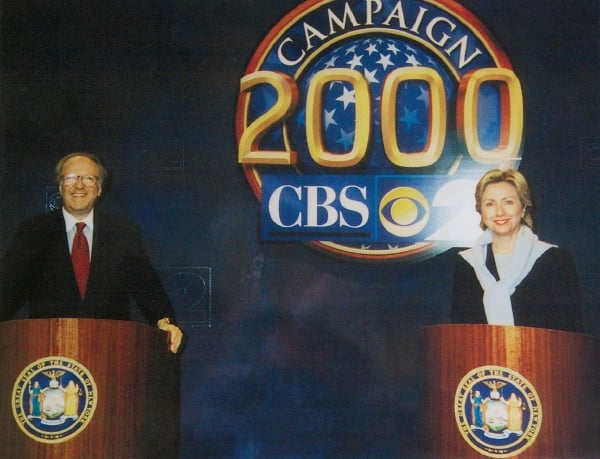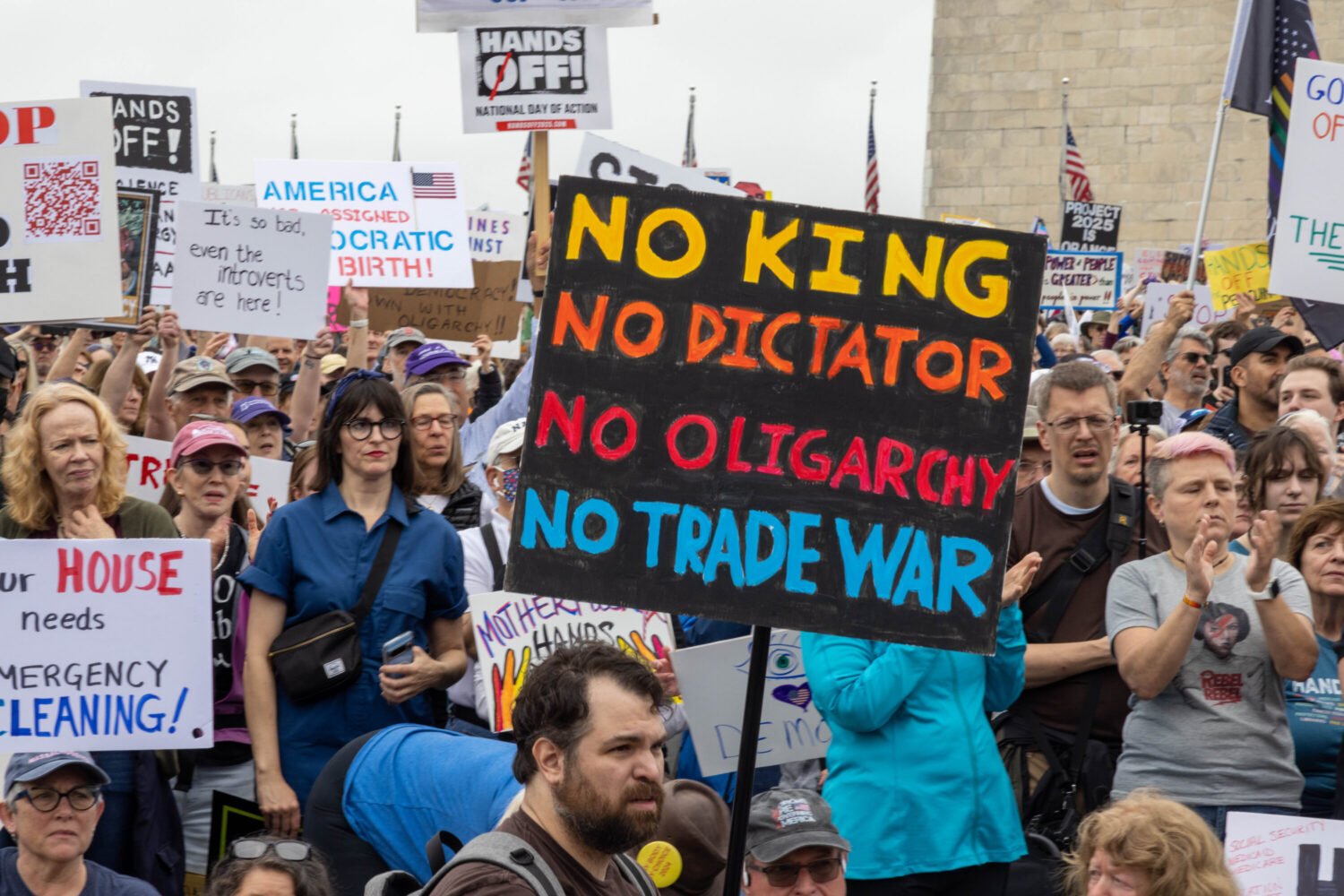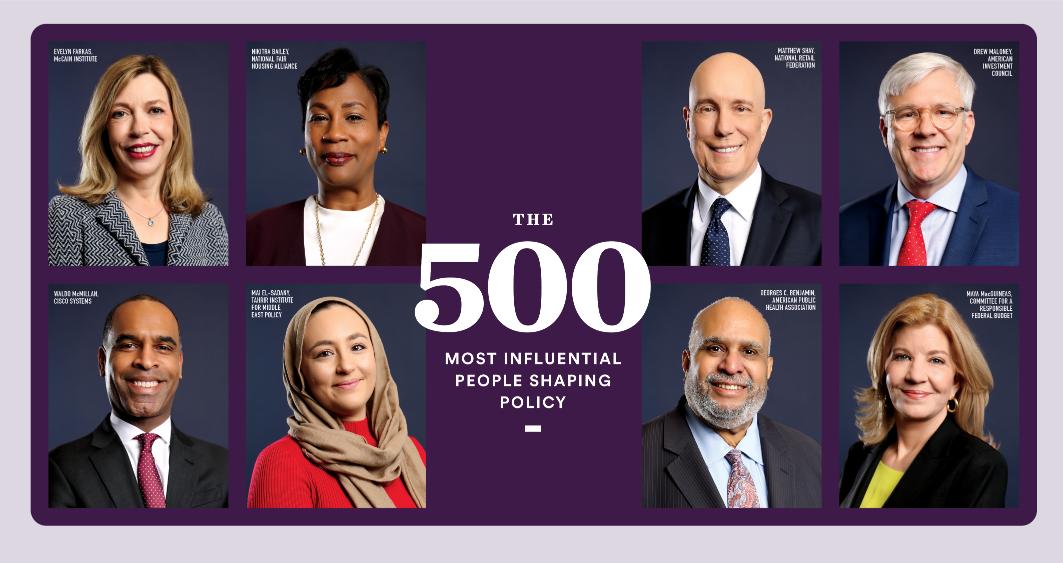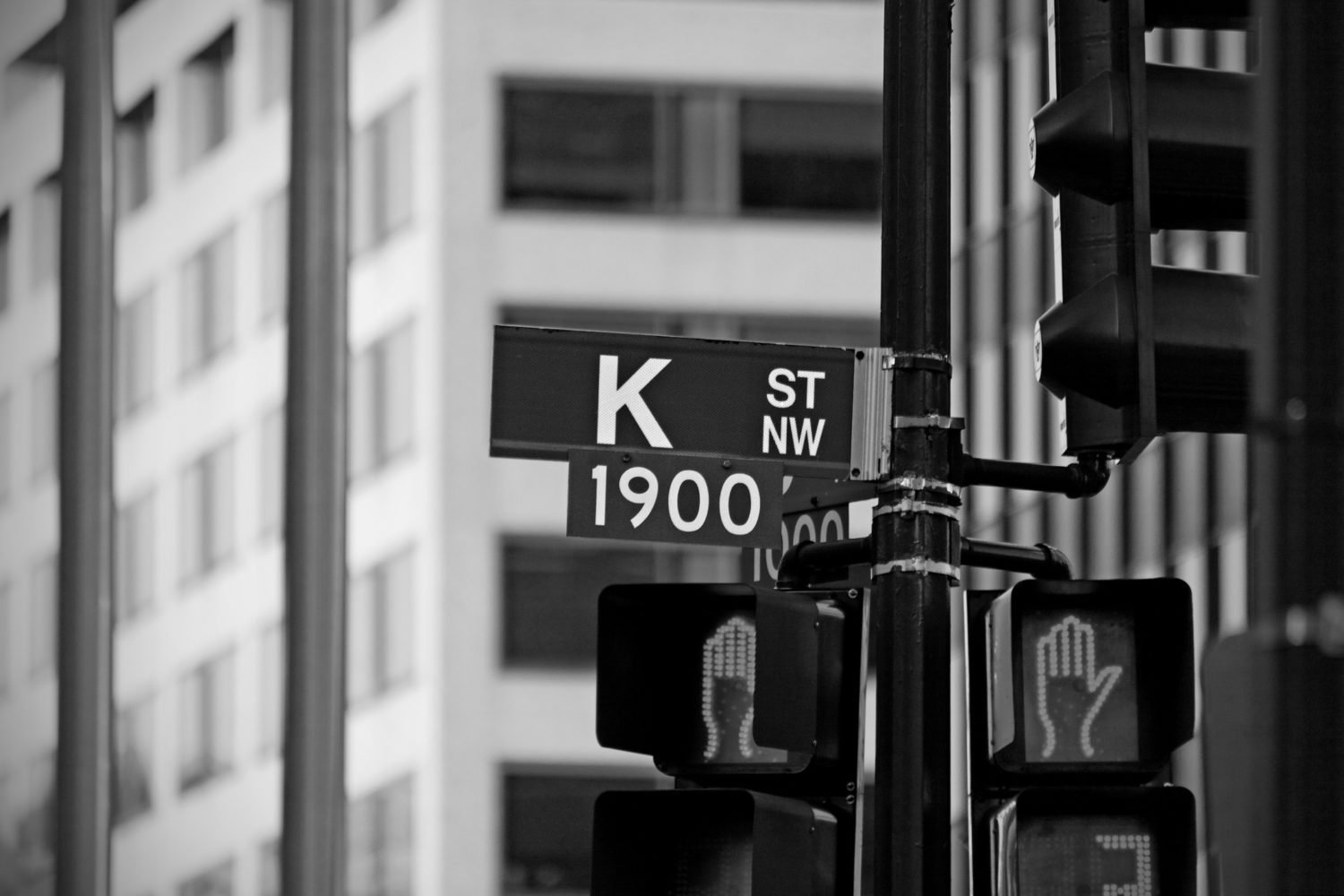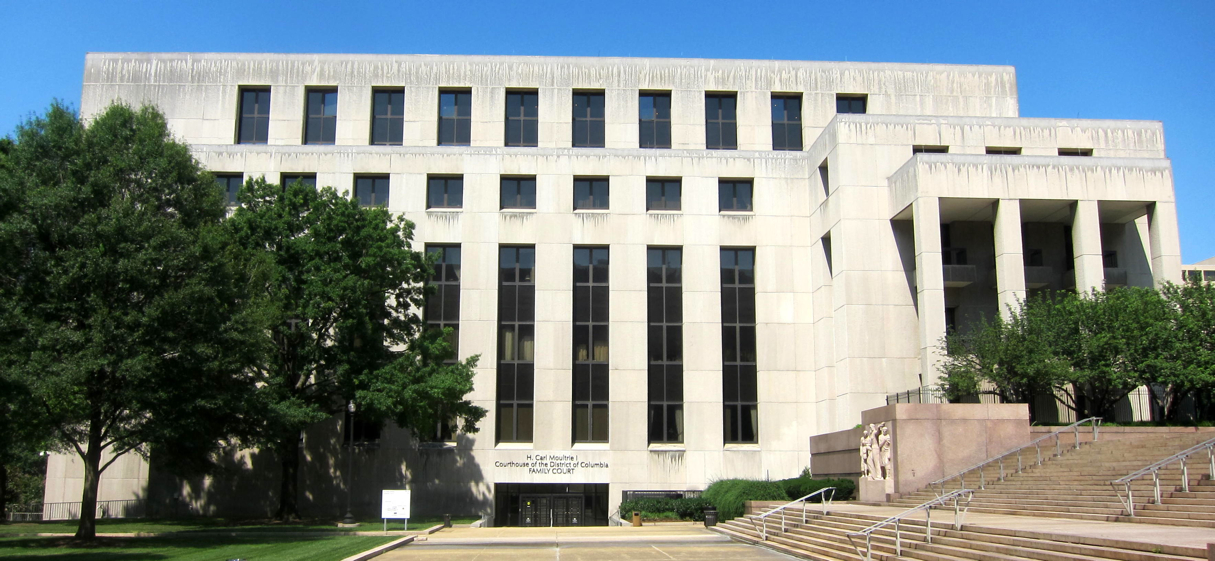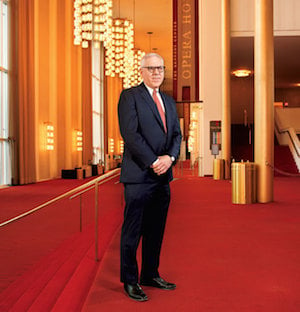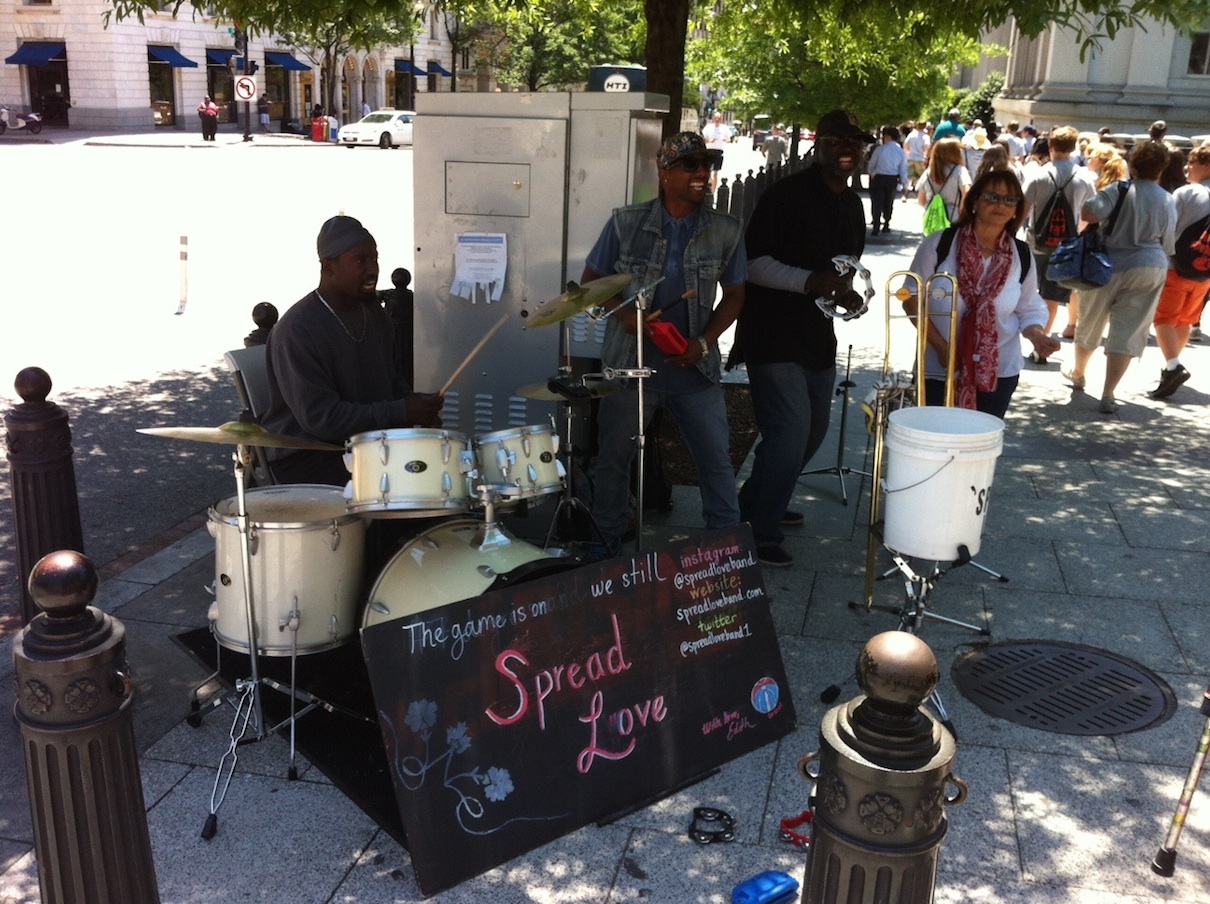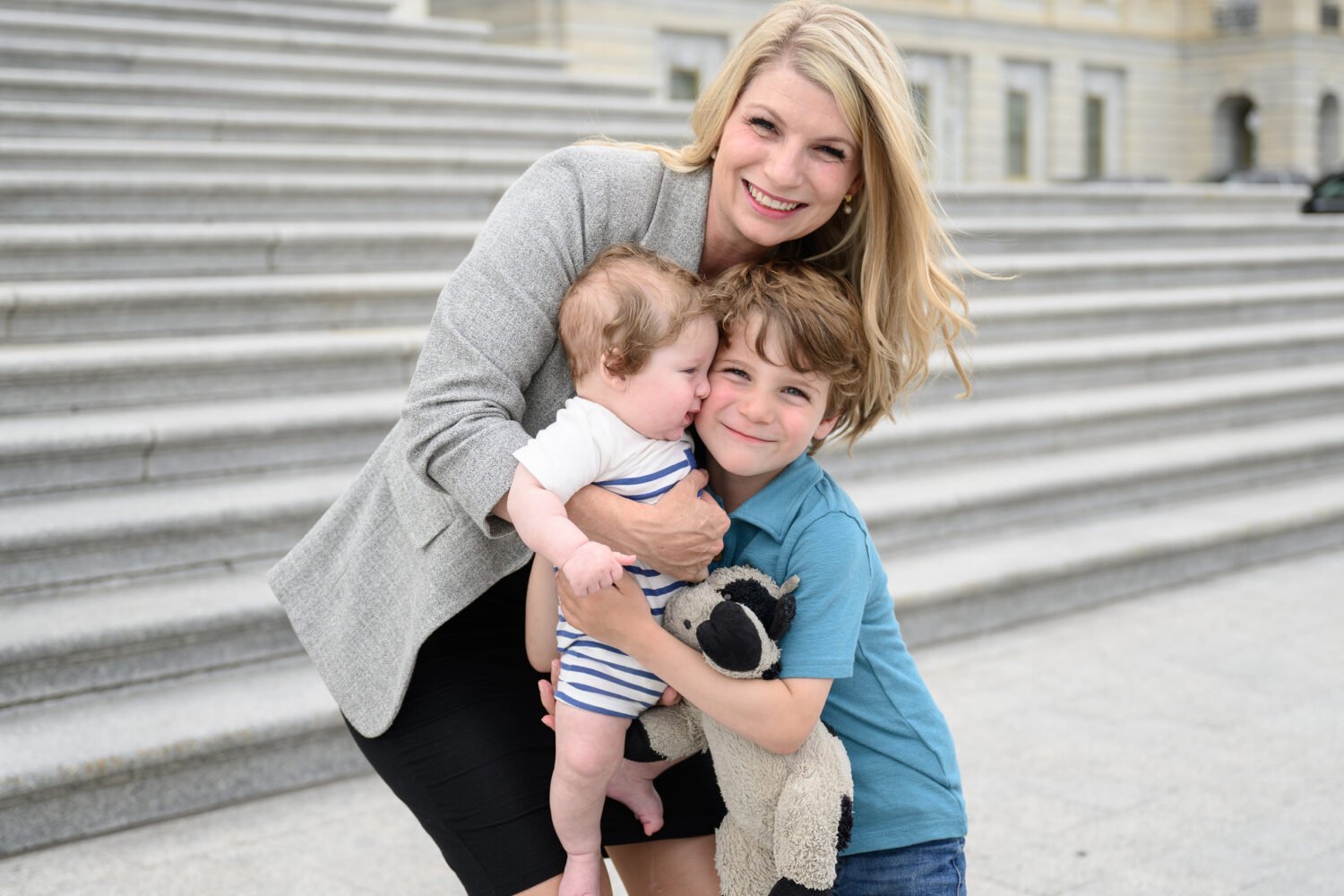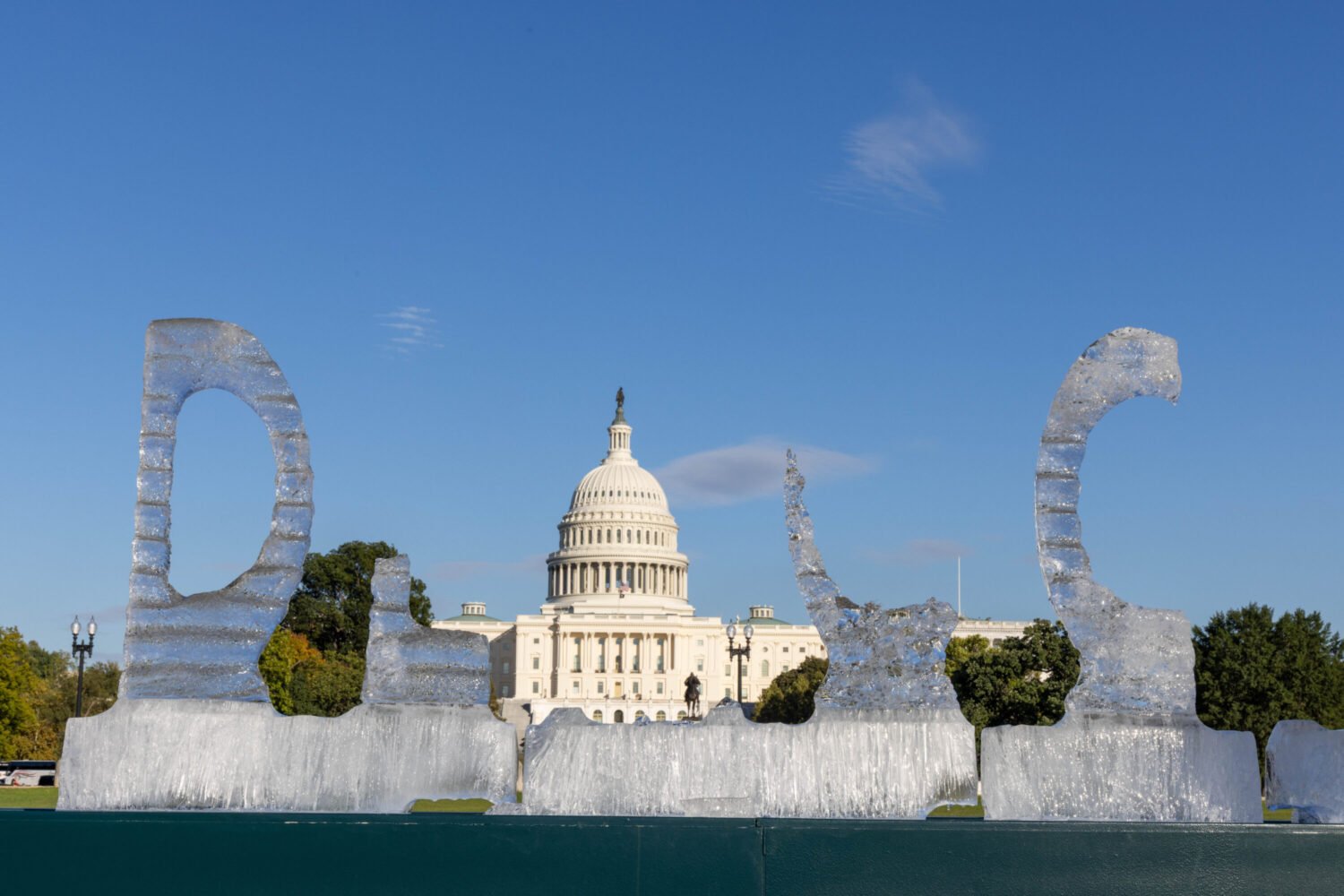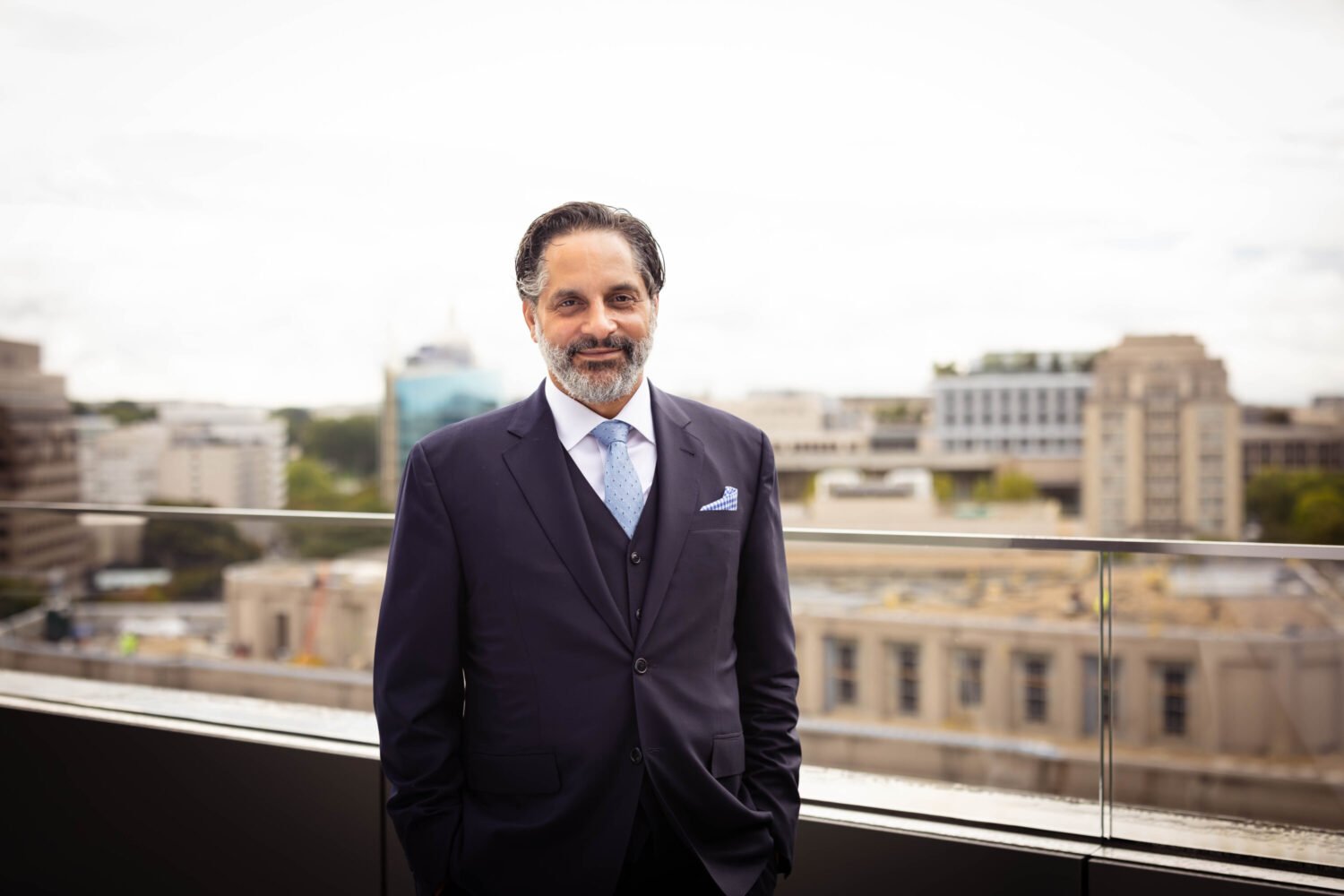I’m about to enter the inner sanctum of the man some people call Washington’s most influential behind-the-scenes operator. I’m not nervous about it—I’ve known Bob Barnett since I started writing about Washington lawyers in 1987. In those days, he was the guy who answered questions about his law firm, Williams & Connolly. Then just 41, he didn’t even seem like a powerful person at his firm, where lawyer legend Edward Bennett Williams reigned and Williams’s best-known protégés were Vincent Fuller, Brendan Sullivan, and Larry Lucchino.
Now 62, Barnett still may not be the most powerful player in the law firm, but he has become Washington’s indispensable man, the link among politicians, authors, government officials, journalists, ex-presidents, future presidents, and even foreign leaders. Former British prime minister Tony Blair had Barnett arrange lucrative consulting deals as well as sell Blair’s memoir for $8 million.
Maybe I should be nervous.
Barnett is known for being methodical. I know from experience that he starts almost every interview with a request that his office decor be off the record.
His secretary tells me that Bob is waiting, and I poke my head into his space. “The office is off the record,” he says. I’m wondering if that includes the view of the 220-year-old St. Patrick’s Catholic church from his 11th-floor corner office. As he ducks out to discuss something with his secretary, I try to figure out what he doesn’t want revealed. I don’t think he would mind my mentioning a bookshelf full of authors he has represented and a lot of pictures of his wife, CBS News correspondent Rita Braver, and their daughter, Meredith. I stay away from his desk for fear that I might discover whatever it is Barnett wants to keep secret.
On his return, Barnett directs me to a seat at a small conference table. He sits at one end and leans back with his hands behind his head. He doesn’t take off his blue suit jacket, which makes me wonder how fast I’ll have to talk to get through the 62 years of his busy life. When I interview lawyers, I’m usually aware of their hourly rates and always wonder if they’re thinking, “That’s another minute I could have billed to a client.” Barnett’s rate is generally $950 an hour.
Robert Bruce Barnett was born August 26, 1946, in Waukegan, Illinois, a town 40 miles north of Chicago, the first child of Betty and Bernard Barnett. Bernard worked for the Social Security Administration, often going to nursing homes and social clubs to explain to people their government benefits. He also had a popular call-in radio program on the subject.
As a preteen, Bob collected stamps and baseball cards and was active in debate and theater. He played the Stage Manager in his high school’s production of Thornton Wilder’s Our Town.
I ask Barnett if Washington is anything like Grover’s Corners, the play’s setting.
“Washington?” Barnett replies. “Ha! Washington isn’t, but Waukegan was.”
His role in Our Town is one of the most daunting in high-school theater, with long speeches to memorize. Barnett has a gift for that. He also was the tri-state debate champion.
After high school, Barnett went to the University of Wisconsin at Madison. He was a brilliant student, and he liked to take his laundry home on weekends.
He joined the Pi Lambda Phi fraternity, where he had a frat brother, Steve Zacharias, who would go on to write screenplays for Revenge of the Nerds movies. Says Larry Weiner, a Barnett frat brother: “Bob’s evening activities did not include the usual events common to living in the frat house. Bob was an evening regular at the UW library, definitely not a party animal.”
The fraternity gave first room choice to its top student, “and nobody could ever wrest that from Bob,” says Bethesda attorney Michael Budow. “If you wanted to find Bob, you knew to look in the library. At the same time, he played intramural sports and had a great sense of humor. We couldn’t understand why he was so serious about school, but he was no robot and everyone liked him.”
In 1967, when he was a senior and without a girlfriend, a housemate suggested that Barnett might like the company of a brainy sophomore from Silver Spring, Maryland, who was into Irish literature, Shakespeare, and the painter Vincent van Gogh but who, like Bob, was majoring in political science.
Barnett was introduced to Rita Braver, an alumna of Bethesda–Chevy Chase High School. For their first meeting, he invited her to a law-school study hall for a “study date.” Barnett walked her back to the dorm that night and asked if she would marry him. She politely declined. “He didn’t bring it up again for five years,” she says.
“I was dead serious—and crushed when she said no,” Barnett says. But they continued to date. He had decided to go to law school and was accepted by several top Ivy League schools. He picked the University of Chicago so he wouldn’t be too far away from Braver. She was flattered but assumed he also did it so he’d be close to his mother’s washing machine.
His fraternity brothers weren’t surprised that Barnett wanted to stay close to Braver: Their studious buddy had hit the dating jackpot. Braver was one of the most attractive girls on campus, says a frat brother: “Boy, did they click. She was just as focused as he was—two people who knew what they wanted.”
After Barnett finished law school in 1971, he landed a clerk’s position with Louisiana federal judge John Minor Wisdom, a legendary Southern judge during the civil-rights era. It was one of the most coveted clerkships in the country. Braver, who had graduated from Wisconsin the year before and had been traveling in Europe, agreed to move to New Orleans with him.
The couple got an apartment near Tulane University. Braver, set on a journalism career, got an entry-level job at WWL, the CBS affiliate in New Orleans, after being turned down for several newspaper jobs. In a matter of months she was producing the station’s 10 pm newscast.
Barnett directed expeditions to more than 100 New Orleans restaurants, marking them off one by one in The New Orleans Underground Gourmet. They spent occasional Saturdays lunching with the judge and his wife, Bonnie, at Galatoire’s, the famous no-reservations restaurant in the French Quarter. The judge rarely had to stand in line.
Clerking suited Barnett. His take on Judge Wisdom sounds a lot like the way former classmates and friends describe Barnett. “He was brilliant without ever being arrogant, he was courtly without ever being condescending,” Barnett wrote after Wisdom’s death in 1999.
Barnett decided to try for a clerkship on the US Supreme Court. He told Braver about his decision while they were riding in the car. And he had a question.
“He suddenly pulled over and asked me to marry him,” she recalls. “Yes, while we were seated in our Opel. This time I accepted.”
The marriage took place at Judge Wisdom’s antebellum mansion in the Garden District—later owned by author Anne Rice—on April 10, 1972. The 13 guests included both their mothers. Louisiana’s Napoleonic code did not allow the judge to officiate. Thirty-six years later, neither Braver nor Barnett remembers who did. Actually, Braver says, “I travel 150 days a year, so it’s really more like we’ve been married only 18 years.”
They moved to Washington in 1972, after Barnett was offered a clerkship with Supreme Court associate justice Byron White. They took an apartment at 4000 Massachusetts Avenue in Northwest DC; the lifelong apartment dwellers still live in the neighborhood.
Barnett’s predecessor as White’s clerk was David Kendall, who would become Barnett’s law partner and later the chief defense lawyer for President Clinton during his impeachment trial. Braver’s connections and performance at WWL helped get her a job as a news-desk editor at the CBS News bureau just as Watergate was heating up.
After his yearlong clerkship, Barnett decided to try political work. He interviewed at the offices of 12 US senators. His Supreme Court clerkship netted him a handful of offers. Barnett sifted through them and settled on Walter Mondale of Minnesota.
Mondale assigned Barnett to work on an effort supporting a measure intended to curb filibusters, especially those of Alabama senator James Allen. Says Mondale: “In about two weeks, Barnett knew more about Senate rules and procedures than I did.”
In his time with Mondale, Barnett made connections that have lasted a lifetime. Michael Berman, who first worked in Mondale’s home-state office, became Barnett’s best friend and is the couple’s closest neighbor at the Colonnade, a condominium complex on New Mexico Avenue often called the Democrats’ Watergate. Berman says he and his wife, Carol, who died last year, shared more than a thousand meals with Barnett and Braver over the years. Friends say Barnett has been Berman’s “rock” since Carol’s death. Berman and Barnett are both collectors of watches and pens, and Barnett has one of the world’s finest collections of antique cuff links.
In 1975, Joseph Califano hired Barnett as an associate at the firm then called Williams, Connolly & Califano. Shortly thereafter, Mondale was chosen by Georgia governor Jimmy Carter to be his running mate in the 1976 presidential election. Barnett took a leave of absence to become one of a cadre of Mondale people who went to Atlanta to help orchestrate the campaign.
When the election was over, Berman was named Vice President Mondale’s deputy chief of staff and counsel. Most of the other campaign staffers, including future Fannie Mae chair Jim Johnson and Dick Moe, now head of the National Trust for Historic Preservation, also took positions on Mondale’s staff. Barnett returned to Williams & Connolly.
“I didn’t want to go into government,” he says. “You can often do more to help your friends in government if you are outside and independent.”
Some sources say Barnett was strong-armed into staying at the firm. When President-elect Carter chose his Cabinet, Joe Califano was named secretary of Health, Education, and Welfare. When he started picking off Williams & Connolly partners to take with him, firm founder Edward Bennett Williams expressed his displeasure. Sources then at the firm say Williams likely made a personal appeal to Barnett, and it was very hard to say no to Ed Williams.
In 1978, the young lawyer and the rising CBS correspondent had a daughter, Meredith. Now, recently married herself, she is CEO of StoreAdore.com, an online guide to boutiques.
As an attorney, Barnett proved a success representing white-collar defendants in grand-jury investigations and the proceedings that often followed.
His steadiest client over the decades has been JM Family Enterprises, a company with an almost uninterrupted 30-year history of controversy, contention, and indictments. JM Family Enterprises was the holding company for Southeast Toyota, which distributes one of every five Toyotas sold in the United States. Jim Moran, the colorful founder of the company (no relation to the Northern Virginia congressman of the same name) was one of the nation’s wealthiest men when he died last year. Much to a lawyer’s delight, Southeast Toyota maintained cantankerous and litigious relationships with many of the 165-plus Toyota dealers it supplies.
In 1984, Barnett helped Moran plead guilty to seven counts of filing false individual and corporate tax returns in exchange for a suspended sentence and community service. Moran was deeply grateful for the deal Barnett worked out. After Moran died, Barnett—who drives nothing but Toyotas (currently a silver Avalon)—was named a trustee of the voting stock in Moran’s company.
Another well-known client has been Franklin Raines, former head of Fannie Mae, and Barnett is now representing another generation of Fannie Mae executives under congressional investigation.

Not an early riser, Barnett makes up for lost time when he gets going in the morning, reading four newspapers and monitoring several morning-news channels while working out on his treadmill. Then he drives to work. When Braver is traveling, Barnett sticks to a dining pattern: Sushi-Ko on Monday, Chicken Out on Tuesday, Cafe Divan on Wednesday, Casbah Cafe on Thursday. “Hopefully, she is back by Friday,” he says.
Barnett’s rise really began in 1984, when Walter Mondale won the Democratic nomination to run against Ronald Reagan, who had won the White House from Jimmy Carter in 1980. In a surprise move, Mondale made a little-known 49-year-old congresswoman from New York, Geraldine Ferraro, his vice presidential pick.
Ferraro was besieged. In a press inquisition that makes anything said about Sarah Palin look tame, Ferraro’s husband’s tax returns and alleged Mob affiliations became news fodder. Mondale asked Barnett to shepherd Ferraro through the process and to help her with her October debate with George H.W. Bush in Philadelphia.
Barnett set about studying Vice President Bush as if he were trying a case before the Supreme Court. Edward Bennett Williams taught his protégés to know everything about a witness and to really understand every opponent. Barnett didn’t just play Bush; he became Bush, combining his political, legal, dramatic, and debating background in one virtuoso performance.
Barnett’s level of obsession both fascinated and irritated Ferraro. “He was a much more impressive Bush than Bush would be,” she recalls, “but he was always changing his watchband to make it look like Bush’s. He was driving me crazy.”
Ferraro says nothing happened in the debate that Barnett hadn’t prepared her for. Reminded that she was asked if, as a woman, she could be counted on to defend the nation in war, Ferraro asks, “What did I say?”
I recite her answer—that you don’t have to be a man to order troops into battle if need be. “That sounds like Barnett,” she says. “He thought of everything, even advising me to say, ‘Good luck, Poppy,’ to him at the beginning of the debate, knowing that Bush hated the nickname and it would make him furious.” She declined the advice.
The election didn’t turn out well for the Mondale/Ferraro ticket, but it was a turning point in the life of 38-year-old Bob Barnett.
Ferraro decided to write a memoir about her attempt to become the nation’s first woman vice president. She wasn’t sure how to proceed, so she asked Barnett to represent her as a lawyer in finding a publisher. Barnett set out on a self-instruction course in how to find an agent and sell a book.
He discovered New York–based literary agent Esther Newberg and worked with her to sell Ferraro’s memoir for an estimated $1 million. Barnett was intrigued by the custom in which the agent takes 15 percent of everything the author brings in, from the initial advance to the royalties for serial and movie rights. He didn’t understand why a writer couldn’t bypass the agent and sell directly to a publisher.
For a book like Ferraro’s that garnered a million-dollar advance, the agent’s fee would be $150,000. Doing the same thing at his hourly rate—then $400—Barnett could both increase his billable hours and save his client lots of money.
The first test of his theory came the following year, 1985, when David Stockman, director of the Office of Management and Budget in the Reagan administration, decided to quit the government and begin a fight over Reagan’s conservative theories of economics. The prospect that Stockman might dump all over Reagan had book editors—and agents—in a frenzy. But Stockman, who had served in Congress with Ferraro, met with Barnett, who pitched himself as a lawyer who might help sell the book. Barnett never uses the word “agent” and turns red when anyone around him does.
Barnett organized an auction for Stockman’s memoir, The Triumph of Politics, and sold it to Harper & Row for $2 million, the most the publishing house had paid for a book in its 168-year history.
In 1988, Barnett befriended Kitty Dukakis, wife of Democratic presidential nominee Michael Dukakis. When the election was over, Barnett sold her book, Now You Know, about her battle against substance abuse and depression.
Four years later, Barnett the debate coach was back, working on the presidential campaign of Bill Clinton. For what would be the only time in six tries against a Bush on the national ticket, the Democrat won.
Barnett’s reputation as a guy who could both make and save you money spread through the Washington establishment. As the Bush administration emptied after its defeat in 1992, Republicans with visions of Stockmanlike figures in their heads began seeking his help in selling their memoirs. In December 1992, Barnett sold the memoirs of Secretary of State James Baker as well as books by Vice President Dan Quayle and wife Marilyn.
Barnett often does deals over lunch in a high-backed wing chair at the Hay-Adams hotel. Shortly after the Baker contract was inked, Barnett orchestrated the sale of a dual political memoir by the Democratic/Republican romantic team of James Carville and Mary Matalin. In an unusual arrangement, rival publishing houses Simon & Schuster and Random House jointly published the book, a deal that mirrored the Carville/Matalin relationship. Industry veterans said that only Barnett had the persuasive skills to make it work.
While he was selling books, Barnett was busy on another aspect of his practice, representing television anchors and personalities in contract negotiations with their employers, a sideline he started in 1978 by representing his wife. After negotiating Rita Braver’s contract with CBS, he had been asked by two other TV people, ABC’s Susan Mercandetti and NBC’s Robin Lloyd, to negotiate their contracts. By 1985, when he sold the Stockman book, Barnett was representing six of the nation’s most influential television journalists. In 1988, when Chris Wallace left NBC as chief White House correspondent to join rival ABC, he chose Barnett to smooth the contentious transition.
Barnett’s influence at the Clinton White House also grew. From the moment the Clintons moved in, they were dogged by allegations of a shady land deal on a project in Arkansas called Whitewater. Much of the work on the project was done by Hillary Clinton’s Rose Law Firm partner, Vince Foster. In her book Living History, Mrs. Clinton identifies Barnett as her “personal lawyer.” He had met the Clintons at the annual Renaissance Weekends in South Carolina, where influential people go to schmooze and argue, and had gotten to know them better during the Dukakis campaign.
“Bob became my counsel and adviser in 1992,” Hillary Clinton wrote in her book, “and I could not have asked for a better friend in the years that followed.”
The Clintons’ legal situation became very complicated on July 20, 1993, when Foster committed suicide. A few days later, Barnett was called to the White House to “secure” Foster’s papers and take them to Williams & Connolly for safekeeping.
On August 6, 1993, the Wall Street Journal published a story questioning whether a lawyer who represented so many journalists—Barnett now was negotiating contracts for some 250 of them—should be so closely involved with the Clintons. One of those journalists, of course, was his wife. Barnett also sensed that his presence around the White House might be awkward for NBC’s Andrea Mitchell, ABC’s Brit Hume, and CNN’s Wolf Blitzer, all Barnett clients covering the White House.
The Journal wasn’t alone in its criticism. Media critic Marvin Kitman wrote, “How exactly does a real reporter, I found myself wondering, cover the President and then sleep with his lawyer every night?”
Braver and Barnett maintain that they never discussed their work. But on August 13 of that year, the Washington Post reported that Barnett had decided to withdraw from representing Hillary Clinton because Braver had been made CBS’s White House correspondent. Barnett handed over his work on Whitewater to another Williams & Connolly lawyer, David Kendall, who had to learn to avoid eye contact with his close friend Braver as he came and went via the White House gate. In fact, after he heard her calling out to greet him a couple of times, he found another way to enter the premises.
While Kendall took the lead in what he felt was a straightforward savings-and-loan case, Barnett reluctantly moved into the background. But he wasn’t invisible. He was no longer officially Hillary Clinton’s lawyer, but he was still a guest at the White House.
Hillary’s memoirs reveal that Barnett was at a White House holiday party in December 1993 when word came that an American Spectator story by David Brock alleging that state troopers had escorted Bill Clinton to sexual liaisons while he was governor of Arkansas was about to be broadcast on CNN.
It was Barnett, of all her counselors and advisers, whom she asked to accompany her upstairs to “talk it over.”
“Bob knelt in front of me as I sank into a small chair against the wall,” she wrote. “With his oversize glasses and mild features, Bob looks like everyone’s favorite uncle.”
Mrs. Clinton said she was too exhausted to go on. “I am just so tired of all of this,” she told Barnett.
Barnett looked her in the eye and told her to snap out of it: “However bad this seems, you’ve got to stick it out.”
The pep talk worked. Two days later, she went out and declared that all the charges against her husband “will end up in the garbage can.”
In December 1995, Barnett was summoned by Republican Senate Banking Committee chair Alfonse D’Amato to testify about the handling of Foster’s papers. Barnett had advised many political friends about how to testify before a committee; now the man who preferred to work behind the screen would have to endure the glare of the national spotlight.
Barnett’s career hung in the balance. One wrong or indiscreet answer and he could be threatened with indictment for perjury. If he seemed to be covering up for Mrs. Clinton, his credibility could be damaged.
But Barnett was confident. “It was nothing,” he shrugs.
On a Monday morning, Barnett took his place at the witness table with Maggie Williams, the First Lady’s chief of staff. The chief interrogator was Michael Chertoff, later to become secretary of Homeland Security. For hours, Chertoff and members of the committee pressed Barnett and Williams to explain what happened in the period between July 20 and July 27, 2003, the week following Vince Foster’s death.
In his lawyerly, matter-of-fact manner, Barnett recited everything he had said and done during that time. He talked about how he had opened the box of Foster’s files, gone through it, taped the box back up, and taken it to his Williams & Connolly office for safekeeping.
The only squirming Barnett did was in sympathy for Maggie Williams, the subject of a blistering assault from North Carolina senator Lauch Faircloth, who charged that Williams had conspired with Mrs. Clinton to remove incriminating papers from Foster’s office before they got to Barnett. Faircloth called Maggie Williams a liar and demanded that she resign.
At that, Barnett dropped his role of witness and became Williams’s defender. “If you’ll bear with me,” he said. “On July 20, 1993, a lot of us lost a good friend. Vincent Foster was a man I respected, worked with, admired, saw socially. I was not as close to him as many of the people who have come before your committee, but I took that loss very hard. All of us did. . . . And so maybe some of the people who come before you who talk about some of the things that happened following Vincent’s sad and untimely death were operating at that time in an atmosphere of grief. I don’t know if you [D’Amato] or Mr. Chertoff or others here have had the sad experience of losing a dear friend or family member. I hope you never have; I hope you never will. But this was a terrible tragedy, and it probably meant that things were done under the auspices of sadness and grief that, as we look back 2½ years now, it’s hard to reconstruct. I must say, and I hope she doesn’t fault me for this, but on the plane going to the funeral—the President invited me to come on the plane to the funeral—I tried to talk to Maggie Williams. Maggie Williams was crying the entire flight. I could not talk to her.”
Those were the final words of the hearing that day, an off-the-cuff closing argument as stirring as any Barnett would ever make. The Whitewater investigation would continue to dog the Clintons, but any danger to Barnett’s career seemed past.
Despite his warm relationship with the Clintons, in 1996 Barnett sold a book proposal by former Clinton aide George Stephanopoulos for $2.7 million. It was David Stockman all over again—a scathing midterm indictment of an administration was published while the subjects were still governing. Barnett claims that the content of the book changed after he sold it.
Barnett has a longstanding relationship with the Washington Post’s Bob Woodward, having helped sell and promote most of his best-selling political tomes. Barnett also handled the sale of Woodward and Bernstein’s Watergate papers to the University of Texas for some $5 million, a deal put together, according to former Post executive editor Ben Bradlee, because Carl Bernstein needed the money.
Later, when Bernstein decided to write an unauthorized biography of Mrs. Clinton, a miffed Barnett refused to help him get an interview with her.
“There have been 61 books written about Mrs. Clinton,” Barnett says, “and the only one worth reading is Living History. That is all I am going to say about it.”
A year later, in 1997, Barnett expanded his book practice beyond Washington and politics when he convinced University of Tennessee coach Pat Summitt to write the first of several best-selling books about women’s basketball. The unathletic Barnett had become fascinated by the sport on trips home to Chicago, where his niece was a star high-school player. The UT connection worked to the benefit of the firm when a number of All-Americans, including Chamique Holdsclaw, hired Williams & Connolly to represent them; several, including Holdsclaw, signed with the Washington Mystics. Later Summitt herself signed a consulting deal with the Mystics, brokered by Barnett.
In 1997, Rita Braver’s four-year tenure as CBS White House correspondent came to an end. Though he wouldn’t have said so, Barnett felt as though he’d been let out of a cage. He was back representing the Clintons right away.
It was Barnett who discovered from Kendall that Whitewater special prosecutor Kenneth Starr had testimony from Monica Lewinsky about her relationship with Hillary Clinton’s husband. On Friday night, August 14, 1998, Barnett gingerly broke the news to Hillary: “You have to face the fact that something about this might be true.”
According to Mrs. Clinton, she said she wouldn’t believe it until she heard it from Bill. “My husband may have his faults, but he has never lied to me,” she told Barnett. The next morning, she says, he did tell the truth.
The notoriety stirred by the affair and Clinton’s impeachment raised the stakes for the first of Hillary’s books, It Takes a Village. While Kendall handled the impeachment trial, Barnett arranged to sell the postpresidential memoirs of both Clintons. Barnett also took an active role in planning Hillary’s subsequent career, including her run for the US Senate.
And Barnett had more than the Clintons on his plate. After George W. Bush defeated Al Gore in the 2000 election, Barnett helped place former Clinton aides and Cabinet members in new jobs. He handled the negotiations for Health and Human Services secretary Donna Shalala to become president of the University of Miami and for Treasury secretary Lawrence Summers to head Harvard.
Barnett’s activities weren’t restricted to Democrats. A friend of Dick Cheney’s wife, Lynne, he handled negotiations that stopped the reissue of a novel she had written that contained racy scenes Republicans might have found objectionable. Later he represented the Cheneys’ daughter Mary for a book. It seemed to bother no one involved that Barnett had played Dick Cheney in a practice debate with Democratic vice presidential candidate Joe Lieberman.
However effective his campaign role-playing, Barnett the lawyer would win either way. The sums he negotiated for political memoirs were unprecedented. To make a million-dollar advance even sweeter, whereas a former government official with a good story would have had to pay an agent $150,000, Barnett’s fees for the same deal might be $50,000 at most.
Even New York editors marvel at the advances he won. Says one veteran book buyer: “Barnett has cost publishers more than any agent in history. I don’t know why it is, but we seem to pay Barnett twice as much as any book is worth.”
Despite being on the other side in the 2000 election, Barnett was hired by Laura and Jenna Bush for books, and he won big advances for books by former CIA director George Tenet, Federal Reserve chair Alan Greenspan, and former British prime minister Tony Blair. For Greenspan, Barnett also negotiated a consulting contract with Pimco, a big international financial company. (He also represents Greenspan’s wife, NBC News correspondent Andrea Mitchell.) For Blair, Barnett arranged a consulting contract with JP Morgan.
In December 2000, he auctioned Hillary Clinton’s memoirs to Simon & Schuster for $8 million—at the time, the second-largest advance ever paid for a nonfiction title, surpassed only by Pope John Paul II’s Crossing the Threshold of Hope. Barnett was not only the seller of the book; he was also a prominent character in it.
A year later, in August 2001, he brokered President Clinton’s memoirs for more than $10 million, shattering the pope’s record. There was some quibbling over this from the Vatican, which claimed that, adjusted for inflation, the Pope’s 1994 book was still number one. Barnett also pondered other deals for Clinton, including a possible daytime television show that producers hoped would be a cross between Oprah and Nightline. Barnett ultimately decided the TV idea lacked dignity.
But the episode showed how far Barnett had traveled from representing authors. He was now the ultimate stage manager, installing Geraldine Ferraro as an analyst on conservative Fox News, moving members of Congress to law firms, figuring out which public officials would be comfortable as presidents of which universities. When Marcus Brauchli recently left the editorship of the Wall Street Journal for the Washington Post, it was Barnett who handled the details on both ends, even though his firm represents Post management on many issues.
Barnett’s connections never seem to end: He hired new Washington Post publisher Katharine Weymouth—who later hired Brauchli—as an associate at Williams & Connolly in 1993. Asked once what other job in Washington he would most want, Barnett answered, “Publisher of the Washington Post.” Before representing Brauchli, Barnett got a conflict-of-interest waiver from the Post.
Barnett says the 250 or so reporters, editors, and anchors that he represents don’t add up to as much work as it sounds like because many of their contracts are three- and four-year deals.
Besides selling authors’ books to publishers, Barnett has become good at advising clients on how to promote bookstore sales. After having made millions for NBC’s Tim Russert, the late host of Meet the Press, with a pair of books about his father and fatherhood, Barnett devised strategies for getting other clients on Meet the Press and other shows, where they could push their books.
The benefits of Barnett’s myriad relationships were illuminated when Karl Rove decided to write a book about his experiences in the Bush White House. He went to Barnett to get a deal. But Barnett didn’t get a warm reception for the seven-figure number he and Rove had in mind.
Enter Mary Matalin, who with husband James Carville had become rich with Barnett’s help—he not only sold their books but also guided them through a number of lucrative media appearances. Matalin was hired by Simon & Schuster to create the imprint Threshold Editions. So when Barnett couldn’t sell Rove to any of the usual suspects at the price he expected, Matalin came to the rescue, buying the rights to Rove’s book for $1.5 million.
When Barnett was persuading publishers to bid on a memoir by Senator Edward Kennedy, one of those who participated was Susan Mercandetti, the former ABC News producer who was once Barnett’s client and is now a top executive at Random House.
Bob Barnett looks sheepish when I suggest that his life isn’t really that challenging, seeing how he represents both the hosts of the shows and the authors, and when sometimes, as with Russert, the hosts are also authors. But Barnett flicks the notion away: “Well, most of the time I am dealing with producers that I don’t represent.”
Still, New York publishers now increasingly count on Barnett to take part in the publicity “rollout,” as he recently did in choosing who would get the first interviews with Bob Woodward upon publication of his latest book, The War Within.
In 2004, Barnett received a call from a new young US senator from Illinois named Barack Obama. Years earlier, an enterprising New York agent, Jane Dystel, had discovered Obama and persuaded him to write Dreams From My Father, the story of how the son of a Kenyan father and a Kansan mother became the first black president of the Harvard Law Review. She had gotten the idea for the book after seeing a news clip about the law student in the New York Times.
Now that Obama was a senator, Dystel wanted him to reissue his book and write another one. But Obama ditched the agent who had discovered him and turned to Barnett to negotiate the reissue of Dreams From My Father and sell The Audacity of Hope. Barnett arranged a seven-figure advance and later did the deal that produced Change We Can Believe In, a collection of Obama speeches and essays.
The popularity of those books and the income they generated helped give Obama the platform and personal financial stability to wage his successful bid for the Democratic nomination.
Despite his efforts on Obama’s behalf, Barnett remained a die-hard Hillary Clinton supporter. He helped prep her for every debate against Obama and the other candidates during the primaries.
When it became obvious that Clinton couldn’t beat Obama in number of delegates, Barnett was her designated negotiator on the terms of her concession. He helped negotiate her role at the Democratic National Convention and the understandings between the Clinton and Obama campaigns.
While Barnett was working to place a Democrat in the White House, he was beginning to help place Republicans leaving the White House, in either book deals or positions at law firms, think tanks, colleges, or investment companies. Among them were George W. Bush friends Karen Hughes and Ari Fleischer. And most assume that when Bush decides to do a deal for his memoirs, he will turn to the man he knows is the best bet to get him a good advance.
As a lawyer, Barnett made the determination that he would represent anyone regardless of political philosophy.
I wondered if Barnett had ever considered the obvious—that if he hadn’t done such a good job for Obama, Hillary Clinton likely would have cruised to the nomination and might now be on the verge of returning to the White House herself. That would make Barnett perhaps the most powerful courtier in the world, assuming he is honest in saying he has no interest in an ambassadorship or Cabinet post.
So I ask him.
“Well, Obama wasn’t running for president then,” Barnett says.
“Ha!” I reply. There’s no way anyone as sophisticated as Barnett is that naive.
He contemplates the question again: “You mean if I hadn’t sold the book package for him, he wouldn’t have won the nomination?”
I nod. “Millions of people read those books,” I say. “They made him.”
Barnett chuckles. A mischievous smile appears. “Hmmm,” he says, “I never thought of that.”
This article first appeared in the December 2008 issue of The Washingtonian. For more articles from that issue, click here.

